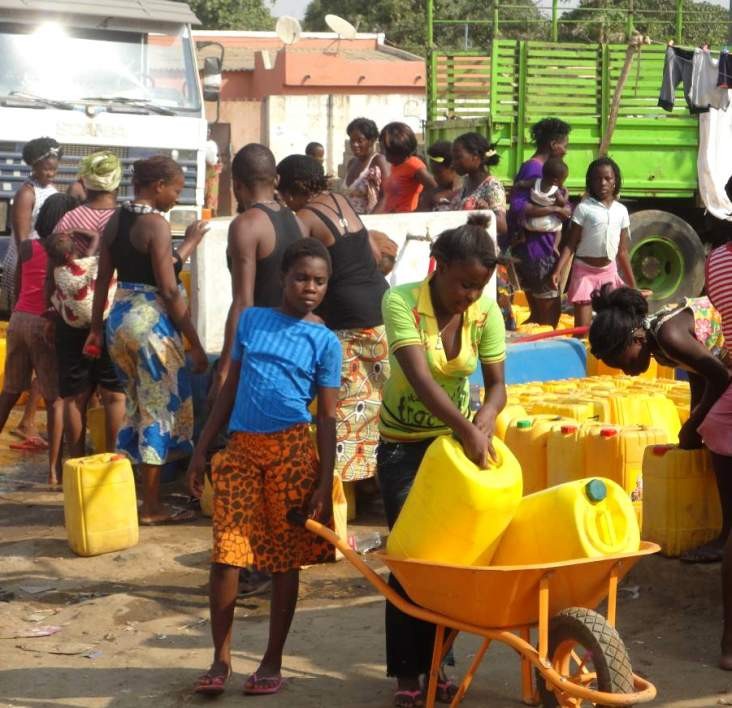Speeches Shim

Despite the Government of Angola’s investment in water and sanitation infrastructure in recent years, including the establishment of the “Water for All” initiative, sustainable access to improved water and sanitation facilities remains a challenge. USAID, through its “Development Grants Program (DGP) initiative, complements the Government of the Republic of Angola (GRA) efforts to increase Angolan access to water by supporting community governance mechanisms that improve the management and operations of water systems. These efforts are embodied by USAID’s support in the roll out of the model of community management of water systems - MOGECA. This model is based on four fundamental principles: a) decentralized management of water systems; b) community participation; c) cost recovery; d) establishment of institutional partnership. The support aims to increase access to potable water at reasonable cost and increase access to improved sanitation and hygiene facilities. Through GDP, USAID also supported a program to improve access to water and sanitation services in primary schools that aimed to reduce the incidence of water-borne diseases that resulted in absenteeism, mostly among girls. One of the components of this program was the construction and rehabilitation of latrines and hand washing facilities in primary schools.
Through our Regional Resilient water project, USAID works to strengthen the capacity and engagement of local communities and organizations for resilient water resource management; and transboundary water governance and inclusive decision-making mechanisms for the Kwando Basin. USAID also supports combating wildlife crime in the Kavango Zambezi Transfrontier Conservation Area (KAZA). USAID works with a local NGO to support wildlife crime awareness in remote communities, identify and map key wildlife crime hotspots, and facilitate cooperation among communities and law enforcement. Through consortium partners, USAID supports the GRA to strengthen legislation and prosecution capacity by funding research studies on illegal wildlife trade and various prosecutor trainings.


Comment
Make a general inquiry or suggest an improvement.